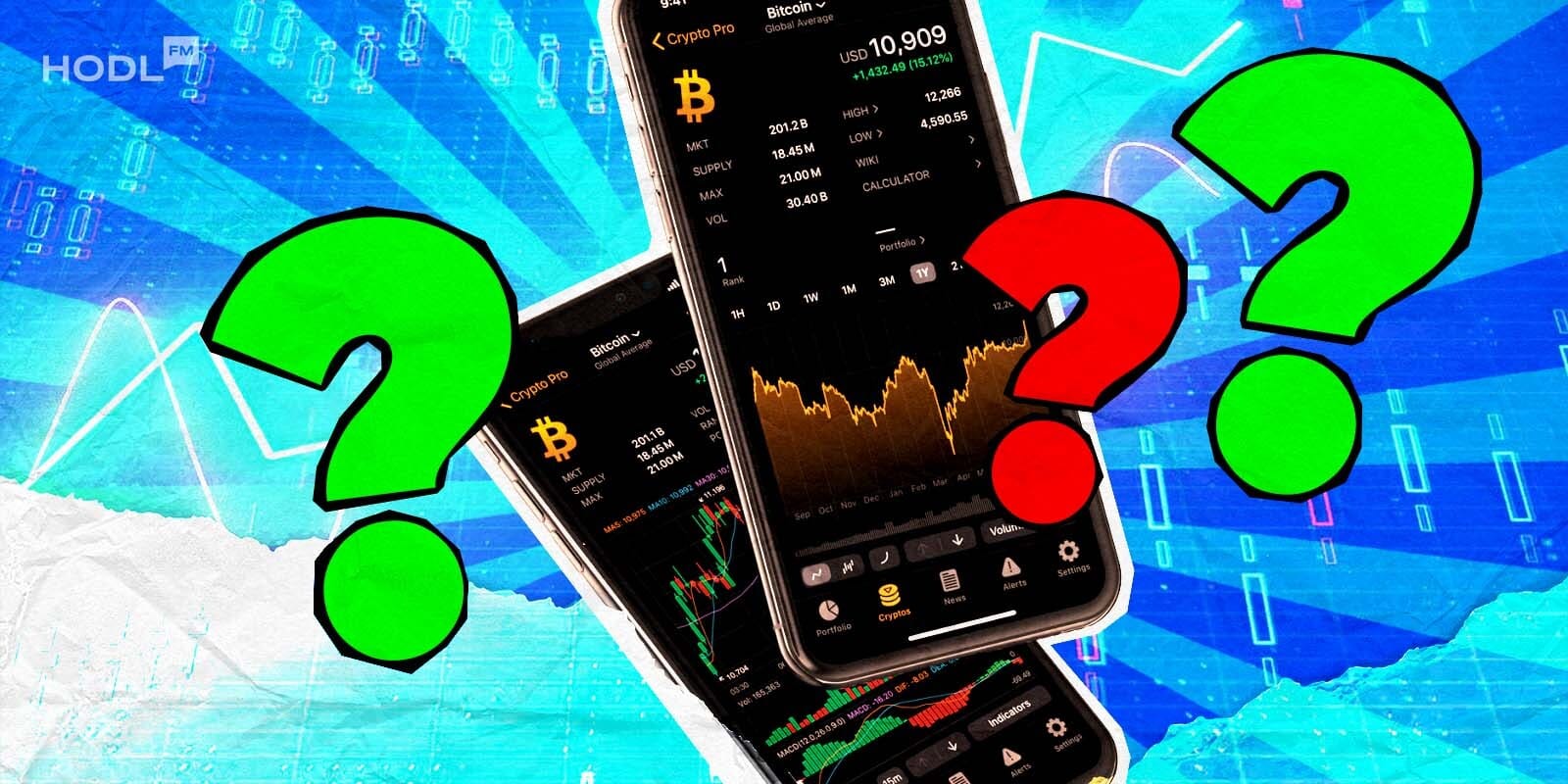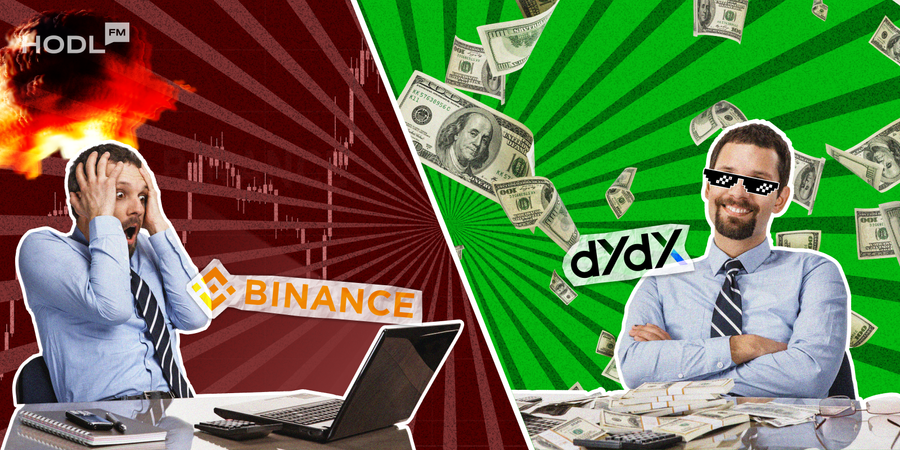Centralization, the very thing the blockchain was against, was a strong aspect of the cryptocurrency scene in the early days. This was because users could only trade their cryptocurrency on a centralized exchange, basically a company that facilitates these trades.
Over the years, many crypto developers have tried to change this, but the launch of Uniswap was the greenlight the industry needed. Now, there are many decentralized exchanges, as far as the eye can see. This article will be our take on the top DEXes of 2025.
Introduction to Decentralized Exchanges (DEXes)
A decentralized exchange is a cryptocurrency exchange that operates without any central governing authority. So, without a middleman, the users can engage in peer-to-peer transactions; no need to pay a middleman for connecting them and all that.
The decentralized exchange operates with the principles of the blockchain, where a bunch of nodes allow the network to operate without control. This exchange works with smart contracts, making it possible for trades to be executed automatically.
DEX vs Centralized Exchange
Now, what's the difference between a decentralized exchange (DEX) and a centralized exchange? The main difference is that the community runs the show in the decentralized exchange, while the centralized exchange runs under a big boss.
Comment
by u/Psychedelic_Traveler from discussion
in ethereum
The centralized exchange holds your funds and connects you to other users to exchange cryptocurrency and bill you for their work. On the decentralized exchange, you hold your funds, you choose who to trade with, and you don’t pay the DEX anything.
Anonymity (one of the things the blockchain promised us) is guaranteed on most decentralized exchanges, while the centralized exchange needs your personal information.
Also, the decentralized exchange offers less of a security risk. That’s because your digital coins are not sitting in one place waiting for a hacker to take them away.
Factors to Consider When Choosing a DEX
Before we introduce the best decentralized exchanges, let's show you what we considered before choosing one.
Trading Fees and Costs
The first thing we did was do a crypto trading fees comparison to see how much these decentralized exchanges charge. While the DEX itself doesn’t take any money from you, you need to pay the people that provide the liquidity and network fees. So, we always choose platforms with low trading fees and low costs for deposits and withdrawals.
Supported Cryptocurrencies
The number of supported digital coins of any decentralized exchange is another major point. With a large number of cryptocurrencies to choose from, you get better flexibility on the coins you can use for trading or investments.
Payment Methods
We also take note of the simplicity of depositing and withdrawing funds, along with the type of payment methods that are available. A higher number of payment methods means you get more options to choose from.
Security Features of Top DEXes
Security is a top priority when money is involved, especially when that money is going online. So, we only choose platforms with trustworthy decentralized exchange security that can keep your funds and personal information safe. The top secure decentralized exchanges use cold storage, two-factor authentication, SSL encryption, and other methods..
Liquidity and Trading Volume Considerations
Remember how centralized exchanges were the only choice at the early stages of the blockchain? Well, that was because of liquidity. Centralized exchanges could easily offer liquidity, while decentralized exchanges cannot.
So, the liquidity in decentralized exchanges should be high; that is a high trading volume and lots of users. With a high DEX exchange liquidity, you can be sure of conducting all your trading transactions with ease and in good time.
Top 9 DEXes of 2025
We’ve shown you how we choose the decentralized exchanges on our list, and now we present the list.
1. OKX DEX
This is one of the best DEX for altcoins, as there are 200,000 coins to choose from. OKX DEX is a multi-chain and cross-chain platform where you gain access to more than 10 blockchains in one place. This decentralized exchange has a daily trading volume of over $4 million, which is quite decent.
This decentralized exchange is non-custodial, so you’re the one in charge of your money. Trading fees are low, and the OKX DEX platform has a more dedicated infrastructure than Ethereum, making it appealing to all decentralized app developers.
2. dYdX
dYdX is a follower of tradition, as it’s an order book that emulates the classic crypto exchange format. It has a mobile app for easy usage and only demands a 0.1% trading fee, which is fair. This exchange supports over 140 cryptocurrencies and boasts a daily trading volume of $243 million.
dYdX is an Ethereum fanboy that offers leveraged trading where you get 5x your investment if you go long or short on ETH. This platform also has a lending service where it offers cross margin lending and borrowing, which makes for a passive earning opportunity.
3. Uniswap
This is the best decentralized crypto exchange on the planet right now. It's the largest DEX with a daily trading volume that easily exceeds $1 billion on a good day.
Uniswap uses an Automated Market Maker (AMM) to guarantee liquidity and offers more than 400 cryptocurrencies to choose from. The transaction fees on this site range from 0.1% to 1%, and you get a chance to earn extra cash with staking. Uniswap is governed by the Decentralized Autonomous Organization (DAO), which is basically a group of fellow users.
Introducing @unichain — a new L2 designed for DeFi ✨
— Uniswap Labs 🦄 (@Uniswap) October 10, 2024
Fast blocks (250ms), cross-chain interoperability, and a decentralized validator network
Built to be the home for liquidity across chains pic.twitter.com/lqfJh6Ltio
4. PancakeSwap
When it comes to low-fee DEX exchanges, PancakeSwap is as good as it gets. PancakeSwap is a decentralized exchange that is built on the Binance Smart Chain and offers automatic trading with its AMM liquidity pools.
This decentralized exchange supports more than 50 decentralized finance tokens and allows staking through CAKE, its native token. You can also use your CAKE to enter lotteries on PancakeSwap and win good prizes. PancakeSwap has a trading volume of over $590 million and a total liquidity of over $1 billion.
5. Curve
Curve stands as the best DEX crypto trading platform if you value stability. That’s because this platform only accepts liquidity pools of assets like stablecoins or wrapped cryptocurrency, such as wBTC and tBTC. This exchange has a market cap of $729 million and a trading volume of over $130 million.
Curve is similar to the OG Uniswap in the sense that it uses AMM and the Ethereum decentralized network. This exchange has low transaction fees (0.04%) and low slippage (which is a measure of how much the price of an asset has moved). You also gain access to over 45 tokens on this site.
6. Balancer
This is another decentralized exchange that is built on the Ethereum network and follows the AMM model. The ‘Balancer’ name comes from the ability of this platform to hold over eight cryptocurrencies in its Balancer Pools.
Balancer offers gas-free transactions (a true rarity) and allows users to choose from various liquidity pools. Of course, this doesn’t mean the owners of the liquidity pools can’t demand their own transaction fees. These transaction fees can be as low as 0.001% or as high as 10%.
The 24-hour trading volume on this platform is over $61 million. Security is top-notch, as Balancer is trustless, with no admin keys or backdoors necessary.
"Nature does not hurry, yet everything is accomplished."
— Balancer (@Balancer) October 16, 2024
Stay balanced and in the flow - your weekly update on all things Balancer.https://t.co/4HPH8F3Ynd
7. Bancor
Bancor is another OG, emerging at roughly the same period as Uniswap and it uses the AMM model. However, this DEX is one of the best AMM exchanges with its automatic liquidity feature that finalizes trades. Bancor has a trading volume of $3.37 million and a market cap of $114 million.
With BNT, the native token of Bancor, transactions are fast and stress-free. You can also earn money from staking BNT or cryptocurrency that you’re not using. Bancor offers $0 trading fees for makers and custom spreads for traders.
8. ApeX Protocol
This is another user of the AMM model but with better flexibility. The order book interface on this exchange is quite beginner-friendly, making ApeX Protocol one of the most user-friendly DEX platforms. So you don’t need to look for instructions the second you get on the platform.
#Uptober is a listing bonanza on #ApeXOmni! Supercharge your trades with 5 new perpetual markets available at up to 50x leverage:
— ApeX Protocol (@OfficialApeXdex) October 24, 2024
➜ $SEI
➜ $TURBO
➜ $MEW
➜ $NEIRO
➜ $NEIROETH
Trade across 60 popular pairs, with more on the horizon. Get Started https://t.co/mtJGSYHzsB! pic.twitter.com/axBwZjW5QT
Security is assured with StarkWare’s layer 2 scalability engine. This engine allows users to withdraw whatever funds they have on this exchange if it ever goes offline at any point. Trading fees on ApeX Protocol are low, and the total trading volume is high, at about $72 billion.
9. KyberSwap
Developed by the Kyber Network, KyberSwap is another AMM operator with many liquidity pools. This exchange is an aggregator that gathers liquidity from a wide range of sources to provide the best options for users.
In the first six months of 2024, KyberSwap has achieved its highest trading volume ever, accompanied by remarkable user growth and a significant increase in the number of transactions.
— Kyber Network (@KyberNetwork) July 2, 2024
Highlights ✨
💰 $11,8B Trading Volume
🙋♂️ 1,3M Unique Users
🤝 5,5M Transactions
⛓️ 3 New… pic.twitter.com/K0h0AT8Vjb
There are over 1,500 cryptocurrencies on KyberSwap and thousands of swap pairs. Also, every user who provides liquidity to KyberSwap earns a 0.3% benefit when that specific pair is traded.

Disclaimer: All materials on this site are for informational purposes only. None of the material should be interpreted as investment advice. Please note that despite the nature of much of the material created and hosted on this website, HODL FM is not a financial reference resource and the opinions of authors and other contributors are their own and should not be taken as financial advice. If you require advice of this sort, HODL FM strongly recommends contacting a qualified industry professional.




